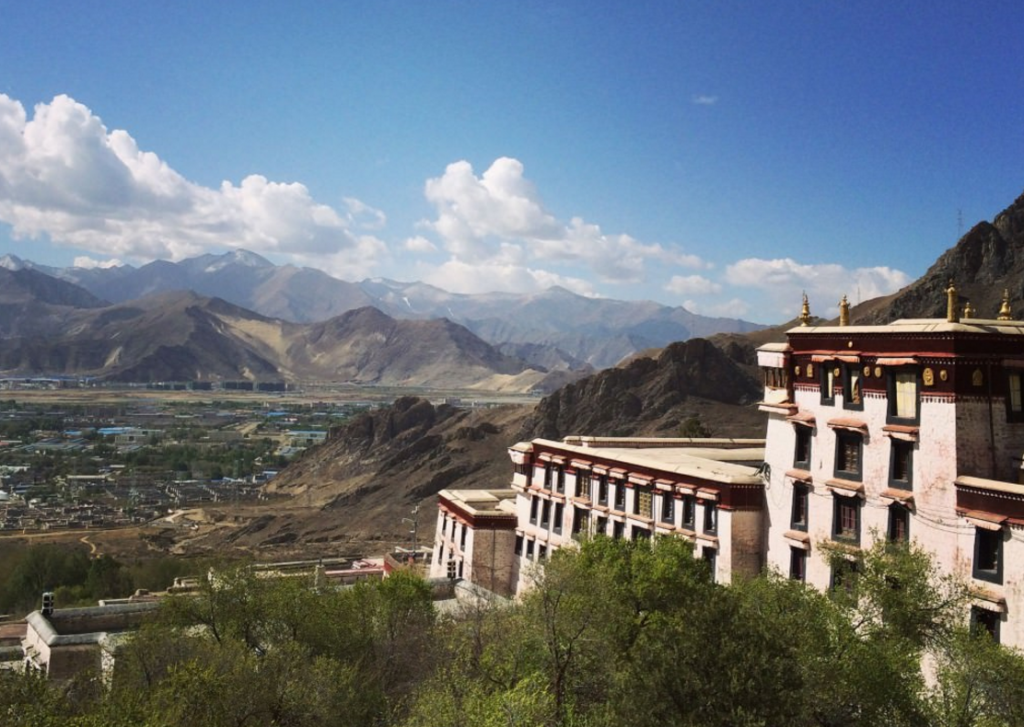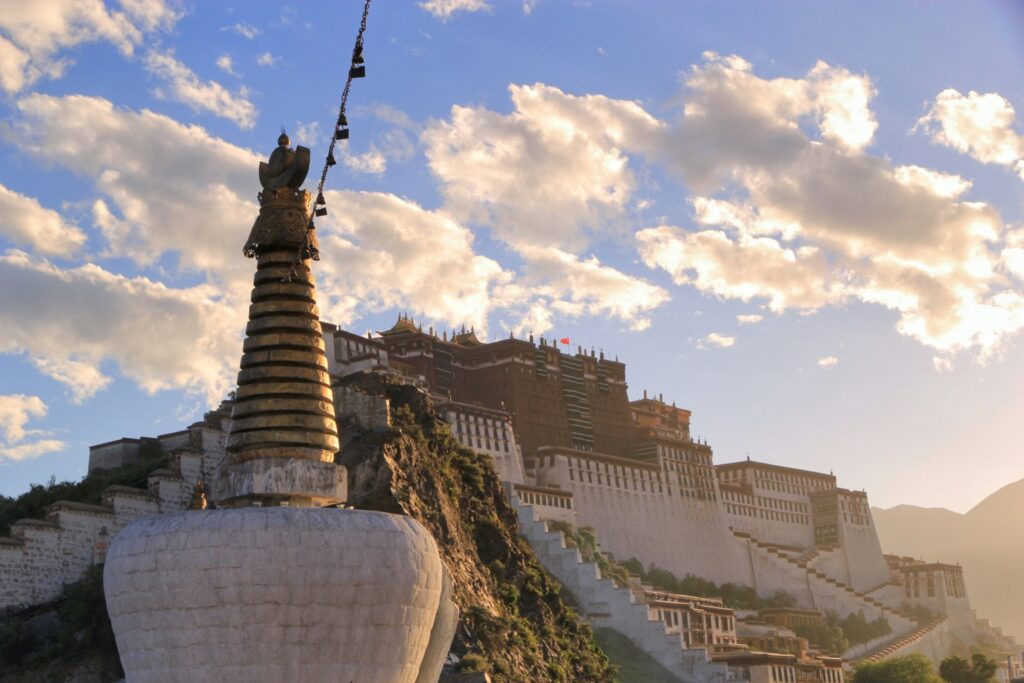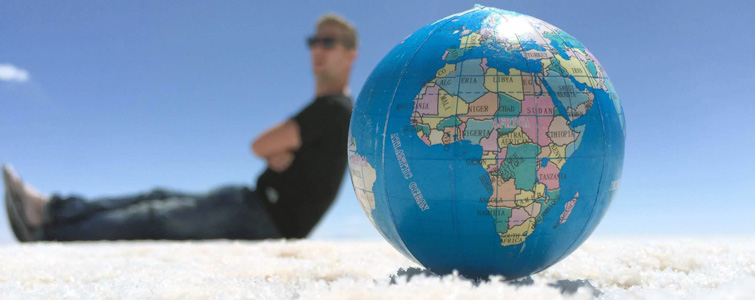Is Tibet a Country?
I’m obsessed with questions like is Tibet a country? Why? Because I spent 10 yeas visiting every country in the world! So I have to know these things! Much like is bali a country, is dubai a country, the canary islands, svalbard etc etc If you also love this stuff, check my answer on is tibet a country, or not.
When people think of Tibet, they picture snow-capped mountains, prayer flags fluttering in the wind, and monks in maroon robes meditating at the edge of the world. It’s magical, mysterious, and utterly fascinating. But ask the question, “Is Tibet a country?”, and you’ve got yourself a can of political worms. Let’s dive into it and unravel this hot topic.

Table of contents
A Little Tibetan History Lesson
First off, is Tibet part of China? Yes… and no. Tibet was historically its own thing — a kingdom, an empire, and eventually a Buddhist theocracy. But things got complicated in 1950 when the Chinese government marched in and claimed Tibet as part of the People’s Republic of China. Fast-forward to today, and China says Tibet is one of its autonomous regions, while Tibetans argue that their homeland is, or should be, independent.
So, is Tibet a country? Politically, no. Officially, it’s considered part of China.
But culturally, historically, and spiritually? Tibet has an identity all its own. It’s a bit like the world’s ongoing debate over “Is Dubai a country?” or “Is Bali a country?” — spoiler: they’re not, but they feel like they could be. Tibet falls into the same kind of gray area.

Is Tibet Part of China?
China calls Tibet the Tibet Autonomous Region (TAR), but “autonomous” is a stretch. The Chinese government controls almost every aspect of life in Tibet — education, religion, politics, and even what flags you’re allowed to fly. There’s no real autonomy here.
For Tibetans, the question of “Is Tibet part of China?” is a sore spot. Many don’t identify as Chinese and continue to fight, peacefully or otherwise, for their independence. The Dalai Lama, Tibet’s spiritual leader, has spent decades advocating for greater autonomy, if not outright independence, but Beijing isn’t budging. It’s a stalemate.
The Cultural Heart of Tibet
While politics might muddy the waters of “is Tibet a country,” one thing’s for sure: Tibet’s culture is distinct. From Tibetan Buddhism to the yak butter tea served in every corner teahouse, there’s no mistaking you’re in a place unlike anywhere else.
Tibetan monasteries, like Jokhang Temple and Tashilhunpo, are alive with prayer and rituals. The Tibetan language is still widely spoken, and festivals like Losar (Tibetan New Year) are celebrated with gusto. Even in the face of political control, the heart of Tibet beats strong.
For a taste of Tibet’s unique culture and landscapes, check out my post on how to travel to Tibet. It’s packed with tips and a bit of my usual rambling about why this place is worth the effort to visit.
Does Any Other Country Recognise Tibet as a country?
Here’s the kicker: no country in the world officially recognizes Tibet as independent. Not one. Even countries that are critical of China’s policies — like the U.S. and some European nations — still acknowledge Tibet as part of China. That’s why when people ask, “Is Tibet a country?”, the answer is politically no, even if it feels like one.
This lack of recognition isn’t unique to Tibet. There are places like Taiwan and Kosovo that also live in the political limbo of not-quite-a-country status. If you’re into the details of how countries are counted and defined, you might enjoy my article on how many countries in the world. Spoiler: it’s trickier than you think.

Why Does It Matter?
The question of “Is Tibet part of China?” isn’t just about maps or flags; it’s about identity, freedom, and history. For Tibetans, being under Chinese rule has meant losing some of their cultural practices, religious freedoms, and even their way of life. Monasteries have been destroyed, and Tibetan Buddhism is heavily regulated by Beijing. But despite these challenges, the spirit of Tibet endures.
Visiting Tibet: Politics Meets Adventure
Traveling to Tibet is an experience unlike any other. The landscapes are stunning, the air is thin, and the culture is unforgettable. But it’s not without its challenges. To visit, you’ll need a special Tibet Travel Permit, and you can’t just wander around on your own — foreign tourists are required to join an organized tour.
If you’re trying to figure out the logistics, check out my guide on how many countries in Asia for tips on exploring this part of the world. It’s not as straightforward as booking a flight, but it’s so worth the effort.
Tibet Today: A Complicated Future
The future of Tibet is uncertain. Beijing shows no signs of loosening its grip, and the world seems reluctant to challenge China on this issue. But Tibet’s culture and people continue to thrive, even under difficult circumstances. Whether or not you consider it a country, Tibet is a place of resilience, beauty, and inspiration.
For more on the cultural and political landscape of Tibet, check out this article from The New York Times. It’s a solid read if you want to dig deeper.

FAQs
1. Is Tibet a country?
No, Tibet is not officially recognized as a country. It’s an autonomous region of China, though many Tibetans and others argue it should be independent.
2. Is Tibet part of China?
Yes, politically Tibet is part of China. However, its culture and identity are distinct, and many Tibetans don’t identify as Chinese.
3. Can I travel to Tibet independently?
No. Foreigners must join an organized tour to visit Tibet and need a special Tibet Travel Permit in addition to a Chinese visa.
4. Is it safe to travel to Tibet?
Yes, Tibet is generally safe for tourists. Just be prepared for altitude sickness, limited Wi-Fi, and strict regulations on your movement.
And there you have it — the lowdown on “is Tibet a country” and “is Tibet part of China.” It’s a land full of contradictions, beauty, and complexity. If you’re even remotely curious about it, pack your bags and go. Just remember to keep your questions about politics subtle when you’re there. Trust me, you don’t want to test Beijing’s patience.
Remember, never travel without travel insurance! And never overpay for travel insurance!
I use HeyMondo. You get INSTANT quotes. Super cheap, they actually pay out, AND they cover almost everywhere, where most insurance companies don't (even places like Central African Republic etc!). You can sign-up here. PS You even get 5% off if you use MY LINK! You can even sign up if you're already overseas and traveling, pretty cool.
Also, if you want to start a blog...I CAN HELP YOU!
Also, if you want to start a blog, and start to change your life, I'd love to help you! Email me on johnny@onestep4ward.com. In the meantime, check out my super easy blog post on how to start a travel blog in under 30 minutes, here! And if you just want to get cracking, use BlueHost at a discount, through me.
Also, (if you're like me, and awful with tech-stuff) email me and my team can get a blog up and running for you, designed and everything, for $699 - email johnny@onestep4ward.com to get started.
Do you work remotely? Are you a digital nomad/blogger etc? You need to be insured too.
I use SafetyWing for my digital nomad insurance. It covers me while I live overseas. It's just $10 a week, and it's amazing! No upfront fees, you just pay week by week, and you can sign up just for a week if you want, then switch it off and on whenever. You can read my review here, and you can sign-up here!













 As you know, blogging changed my life. I left Ireland broke, with no plan, with just a one-way ticket to Thailand
and no money. Since then, I started a blog, then a digital media company, I've made
more than $1,500,000 USD, bought 4 properties and visited (almost) every country in the world. And I did it all from my laptop as I
travel the world and live my dream. I talk about how I did it, and how you can do it too, in my COMPLETELY FREE
Ebook, all 20,000
words or so. Just finish the process by putting in your email below and I'll mail it right out to you immediately. No spam ever too, I promise!
As you know, blogging changed my life. I left Ireland broke, with no plan, with just a one-way ticket to Thailand
and no money. Since then, I started a blog, then a digital media company, I've made
more than $1,500,000 USD, bought 4 properties and visited (almost) every country in the world. And I did it all from my laptop as I
travel the world and live my dream. I talk about how I did it, and how you can do it too, in my COMPLETELY FREE
Ebook, all 20,000
words or so. Just finish the process by putting in your email below and I'll mail it right out to you immediately. No spam ever too, I promise!
